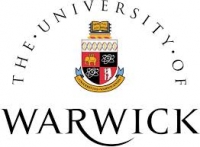






Civil engineers are vital for our future national infrastructure and services. Today’s emphasis on sustainability in construction is reflected in our research, where, for example, we are studying the role that the built environment plays in people’s health and wellbeing; investigating the novel and resilient systems of composite materials and structures (including the dynamic response of structures such as bridges to human loading); and tackling the problems of pollution within rivers and the coastal environment. In the early part of your degree you can apply your knowledge to civil engineering through design, for example, by the creation and load testing of a roof structure. Our optional module Forensic Engineering will show you how to improve designs by learning from past failures. The third and fourth years give core experience of both design and construction methods, with modules such as concrete and steel structures, geotechnical engineering and structural analysis. Fieldwork is an essential component of both civil degrees and we run geotechnical engineering field courses in the UK and a rural technology transfer course in Africa. Fourth year MEng students can add Business Management or Sustainability electives. Group tasks have included the Halcrow Yolles project to design a new zero carbon house and the evaluation of discharge capacity for a bell-mouth spillway using hydraulic physical laboratory model studies and CFD numerical modelling techniques for Severn Trent Water. For module information please visit the Civil Engineering website. How will I be taught? Each week you will have lectures, seminars, tutorials and practical laboratory sessions. To help you make the transition from school to university, in your first year you will meet your personal tutor each week in a group of five to ten students to address academic issues arising from the lectures. Engineers are always involved in interdisciplinary group work and this forms part of our courses from day one. How will I be assessed? Assessment is through examinations and coursework. Coursework assessment can include laboratory reports, projects, essays and oral presentations. Assessment is normally 60–70% by examination and 30–40% by coursework. What opportunities are there for work experience and study abroad? You can gain industrial experience in the UK and abroad via visits, project work and placements during vacations. Our most recent scheme has enabled students to work on a project in Uganda, repairing micro hydro power generators. You can take a year in industry or in a research environment. Placements may be taken as part of the MEng programme with the experience reflected in the degree title and extending your degree to five years. You may also arrange an informal period in research or industry by prior agreement with your course tutor. We have partnerships with European and Australian universities enabling you to spend your third year of your MEng studying abroad.
| Number | Duration |
|---|---|
| 3 | year |
An engineering degree is a passport to opportunities in a wide range of disciplines and the majority of our graduates follow careers in engineering and IT with a huge range of job specifications from software engineering at Sony-Ericsson to mechanical systems engineering at Network Rail as well as roles in accountancy, consultancy or finance. Around 20% of our graduates go on to postgraduate study at Master’s or Doctoral level. The breadth of experience we provide means that graduate unemployment rates are low. Becoming a Chartered Engineer: A four-year MEng course equips you with the educational base to become a Chartered Engineer (CEng). The three-year BEng degree is accredited as partially satisfying the educational base for a Chartered Engineer. A programme of accredited Further Learning will be required to complete the educational base for CEng status.